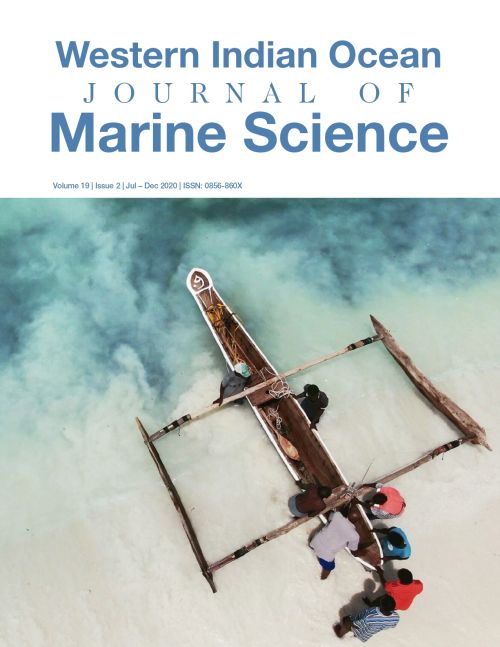Main Article Content
A socio-ecological system perspective on trade interactions within artisanal fisheries in coastal Kenya
Abstract
Assessments of coastal artisanal fisheries are progressively adopting a social-ecological system (SES) approach as an effective means to accumulate knowledge and integrate findings on different aspects of the fisheries. Ostrom’s SES framework was used to guide assessment of interactions between and within the harvesting and supply-chain processes and the effect of external drivers, seasonal monsoons and tourism, on both processes in a coastal artisanal fishery system in Gazi Bay, Kenya. Specific analyses focused on seasonal catch composition, key resource user groups involved in the fish trade and the resource units traded by each user group. The snowball method was used to identify key resource user groups within the fishery sector, who were then interviewed using semi-structured questionnaires (n = 60). Additionally, existing annual shore-based catch assessment and monthly fish landings data for the years 2014 and 2015 were incorporated for analysis of artisanal catch properties (species composition and weight). Comparison of seasonal catch composition was carried out using sample-based rarefaction curves. Higher fish landings and higher species diversity were recorded during the North-East Monsoon season. Further, a simple fish harvesting-supply network comprising of six key resource user groups (i.e. hotels, fish processing companies, dealers, small-scale fish processors (mama karanga), fish mongers and fishers) was outlined. The tourism industry, through hotels, creates a high demand for fish coinciding with a higher catchability and supply during the calm North-East Monsoon season and consequently, dealers hire migrant fishermen to target pelagic fish. Evidence of interactions within and between different fishery sub-systems, as well as the effect of monsoon seasons and tourism on the exploitation and market dynamics of the multispecies fishery, highlight the need for comprehensive management plans to strengthen self-organization among resource users and to increase adaptive capacity within the fishery system.






